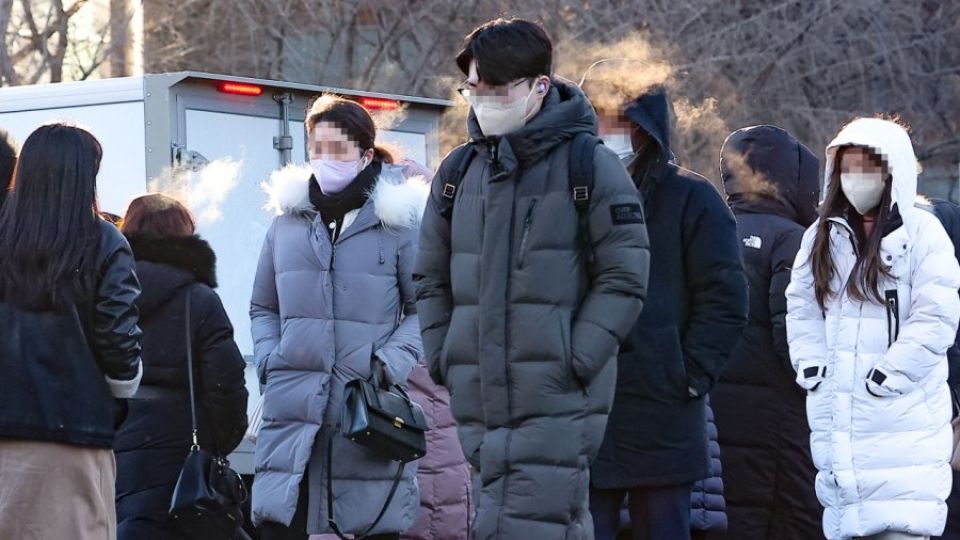January 26, 2023
SEOUL – With accidents and facility damage reports continuing nationwide Wednesday, the nation’s weather agency said the cold wave would ease from Thursday, but heavy snow is to follow.
On Wednesday morning, when most areas of the country saw their lowest temperatures this year, the temperature in Seoul dropped to minus 17.3 degrees Celsius, the seventh lowest temperature in Seoul in the 21st century. Combined with the strong wind, the sensory temperature fell to minus 23.3 C.
Damage caused by the record-breaking cold snap and strong winds continued from Tuesday night to Wednesday morning.
Reports of frozen water meters continued throughout the night. As of 11 a.m. Wednesday, 140 cases of damaged water meters had been tallied nationwide, including 98 in Seoul and 21 in Gyeonggi Province.
About 100 people were stranded on Ulleungdo, an island about 150 kilometers off the east coast, as every passenger ship route was halted for two days after more than 70 centimeters of snow fell from Monday night.
In South Jeolla Province, where the cold weather overlapped with heavy snow, a series of accidents involving vehicles and other facilities were reported. South Jeolla Province Fire Department had received 55 reports from Tuesday night to early Wednesday, including 22 traffic accidents caused by slippery roads and several signs being blown over by strong winds.
Some residents suffered from blackouts amid the severe cold. A power outage occurred at around 5 p.m. on Tuesday in Millak-dong in Uijeongbu, Gyeonggi Province. Korea Electric Power Corp. carried out emergency restoration work, which was completed only at midnight on Wednesday, exposing residents to the cold for seven hours. Kepco is investigating the cause of the blackout, under the assumption that it was influenced by the weather.
The KMA predicted that the cold wave would peak Wednesday and ease from Thursday. However, just as soon as the cold wave abates, heavy snow is expected in most parts of the country.
Snow is expected to fall mainly around the Seoul metropolitan area from early Thursday. The KMA warned that snow combined with the low temperatures would likely freeze over roads, increasing danger at rush hour. The Seoul Metropolitan Government plans to officially enter emergency mode from 11 p.m. Wednesday, with 9,405 personnel and 1,394 snow removal equipment deployed to prevent safety accidents.
Temperatures will rise gradually, but are to stay below zero for the time being, as cold air enters periodically, said the KMA official in a briefing Wednesday.
Meanwhile, the Arctic cold wave that has brought unusually cold temperatures has not only stuck the Korean Peninsula, but also affected China and Japan.
In the small city of Mohe in China’s northernmost region, the temperature dropped to minus 53 C on Sunday, setting a record for lowest temperature there since records began in 1969. Nicknamed “China’s Arctic,” Mohe is a cold region with an average annual temperature of minus 3 C, but the recent cold wave is exceptional.
Japan was swept by heavy snow in several areas over two days from Tuesday to Wednesday. Nearly 1 meter of snow is forecast to fall in the Hokuriku region until Thursday, according to the Japanese weather agency. The Japanese government urged caution, emphasizing that it is an unusual, once-in-a-decade cold wave.
The origin of the cold snap is a concentration of cold air below minus 50 Celsius over Siberia that suddenly swept across China, the Korean Peninsula and Japan.


